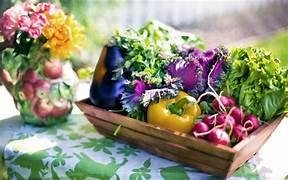Both gardening enthusiasts and professionals have understood for a long time the significance of supplying plants with proper nutrients. Out of the numerous choices accessible, organic plant fertilizer is favored by many individuals who are interested in creating a successful, environmentally friendly garden. Understanding the advantages of organic plant food can greatly affect the health and growth of your plants, whether you have a small urban garden or a larger piece of land to manage. Companies such as fif fit garden are taking the lead by providing eco-friendly gardening solutions.
Understanding Organic Plant Food
Organic plant food is made from natural sources without synthetic chemicals, including fertilizers and soil amendments. Typically, these items are created with compost, animal waste, bone meal, and other organic substances that break down and release vital nutrients into the soil over time. Organic plant food differs from synthetic fertilizers as it focuses on enhancing soil structure and promoting the growth of helpful microorganisms, rather than providing quick nutrients that may harm the soil. This method doesn’t just nourish the plants, it also boosts the general well-being of the garden ecosystem.
The Environmental Impact
Selecting organic plant food is attractive due to its beneficial effects on the environment. Synthetic fertilizers are frequently made with fossil fuels and can cause pollution by running off into water sources, ultimately affecting aquatic ecosystems. On the other hand, organic plant food is created from sustainable materials and breaks down naturally, decreasing the chance of harming the environment. Gardeners can greatly decrease their carbon footprint and aid in maintaining the natural balance of their environment by opting for organic methods. Organic methods also encourage biodiversity by creating a soil environment that is healthy and diverse, allowing plants and beneficial organisms to flourish.
Healthier Plants and Produce
Plants fed organic plant food are typically healthier and better able to resist pests and diseases. This happens because organic fertilizers slowly release nutrients, which offer a continual source of nourishment for strengthening plant roots and encouraging robust growth. Moreover, organic fertilizers improve soil fertility gradually, leading to easier nutrient access for plants. The outcome includes plants that are stronger and fruits and vegetables that are more delicious and nutritious. For individuals who are cultivating edible plants, this could result in a substantial improvement in the quality of the harvest, providing a healthier, chemical-free alternative for meals.
Economic Benefits of Organic Gardening
Although organic plant food may be viewed as pricier than synthetic options, the significant economic advantages in the long run are notable. Organic gardening techniques, such as using organic fertilizers, enhance soil health and quality, decreasing the necessity for frequent treatments. Over time, this could result in reduced costs, as gardeners invest less in fertilizers and soil conditioners. Moreover, the improved health of plants reduces pest and disease damage, which helps maintain the financial viability of an organic garden. Purchasing organic plant food is a long-term investment in the productivity and health of your garden.
Embracing Sustainability in Your Garden
Sustainability goes beyond being a trendy term; it is a vital factor for gardeners who are conscious of their ecological footprint. When you opt for organic plant food, you are backing farming methods that align with the natural environment. This method aids in preserving natural resources, decreasing pollution, and encouraging soil regeneration. Organic gardening supports broader initiatives aimed at addressing climate change by promoting the storage of carbon in fertile soils. As organic practices are increasingly adopted by more gardeners, it can result in substantial beneficial effects on local and global ecosystems.
How to Choose the Right Organic Plant Food
Choosing the appropriate organic plant fertilizer relies on various factors such as the individual requirements of your plants, soil conditions, and gardening objectives. Reading labels thoroughly and selecting items that are certified organic is crucial to ensure they meet the top standards for environmental sustainability and safety. Take into account the nutritional value of the item and any extra advantages it may offer, like the existence of helpful microbes or soil enhancers. Trying out various organic plant food options can assist you in discovering the optimal choice for your garden, resulting in robust, colorful growth and a flourishing ecosystem.
Conclusion
Organic plant fertilizer provides various advantages that extend beyond just nourishing your plants. Organic choices offer a comprehensive method for caring for plants that benefits both your garden and the environment by improving the soil, encouraging biodiversity, and promoting sustainable gardening practices. Whether you have experience in gardening or are a beginner, transitioning to organic plant food is a move towards a healthier and more eco-friendly future for your garden and the Earth.





I don’t think the title of your article matches the content lol. Just kidding, mainly because I had some doubts after reading the article. https://accounts.binance.com/vi/register-person?ref=WTOZ531Y
Your article helped me a lot, is there any more related content? Thanks!
Your point of view caught my eye and was very interesting. Thanks. I have a question for you.
Your point of view caught my eye and was very interesting. Thanks. I have a question for you.
Thanks for sharing. I read many of your blog posts, cool, your blog is very good.
hgh bodybuilding dosage
References:
Hgh Cycle For Muscle Gain (https://Personalbookmark.Space/Item/304130)
4 week dianabol cycle
References:
Dianabol cycle Results
post cycle therapy for dianabol
References:
dianabol deca cycle (firsturl.de)
how much hgh to take a day for bodybuilding
References:
Hgh Hormone Injection Side Effects (Jobs.Jaylock-Ph.Com)
best tren stack
References:
steroids suppliers – http://git.youkehulian.Cn/ –
I don’t think the title of your article matches the content lol. Just kidding, mainly because I had some doubts after reading the article. https://www.binance.com/join?ref=P9L9FQKY
winstrol v steroid
References:
Pills To Get Bigger Muscles; https://Panoptikon.Org/User/Ownerpine32,
ipamorelin and tirzepatide together
References:
what is the difference between tesamorelin and ipamorelin (Jeremiah)
cjc-1295 ipamorelin nasal spray
References:
cjc 1295 ipamorelin Heart palpitations
ipamorelin cjc for sale
References:
valley.md
how to cycle cjc 1295 ipamorelin
References:
Cjc-1295 No Dac And Ipamorelin Blend
reconstituting cjc 1295 ipamorelin
References:
cjc-1295 ipamorelin peptide buy online (https://noticiasenvivo.top/item/461974)